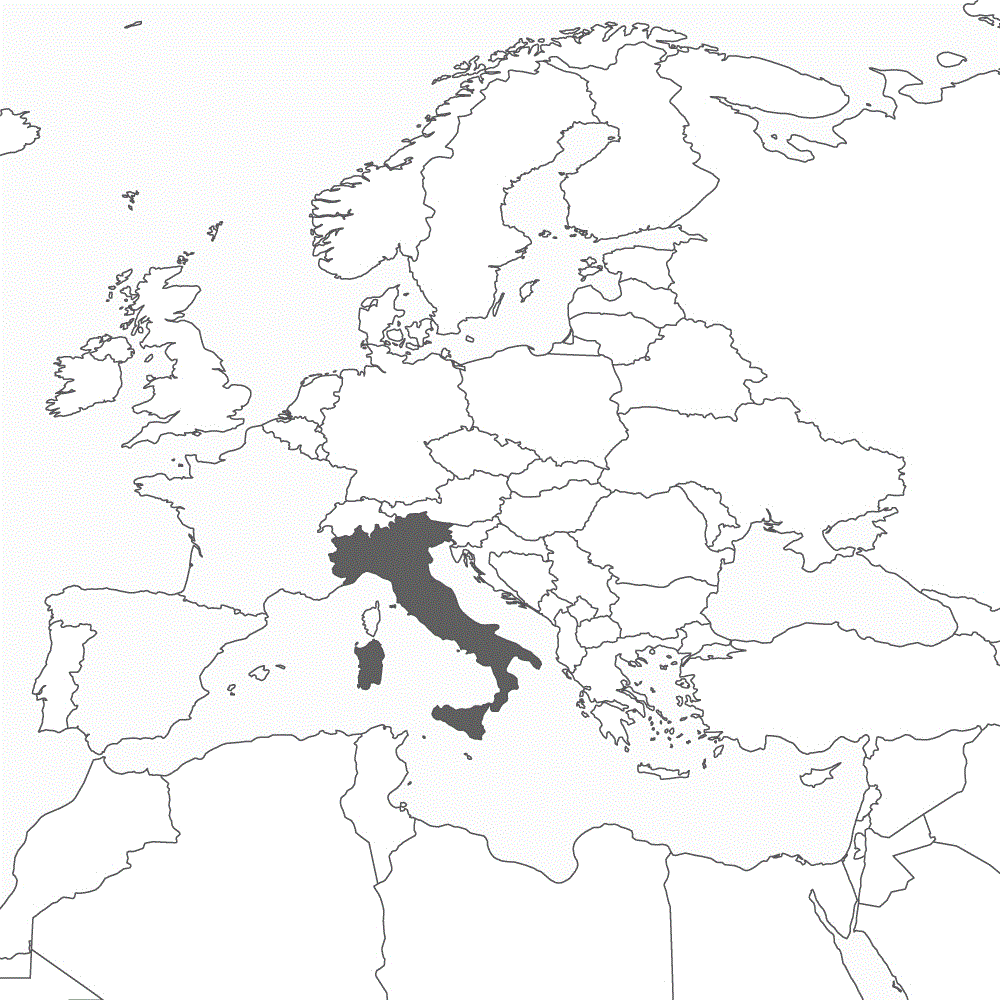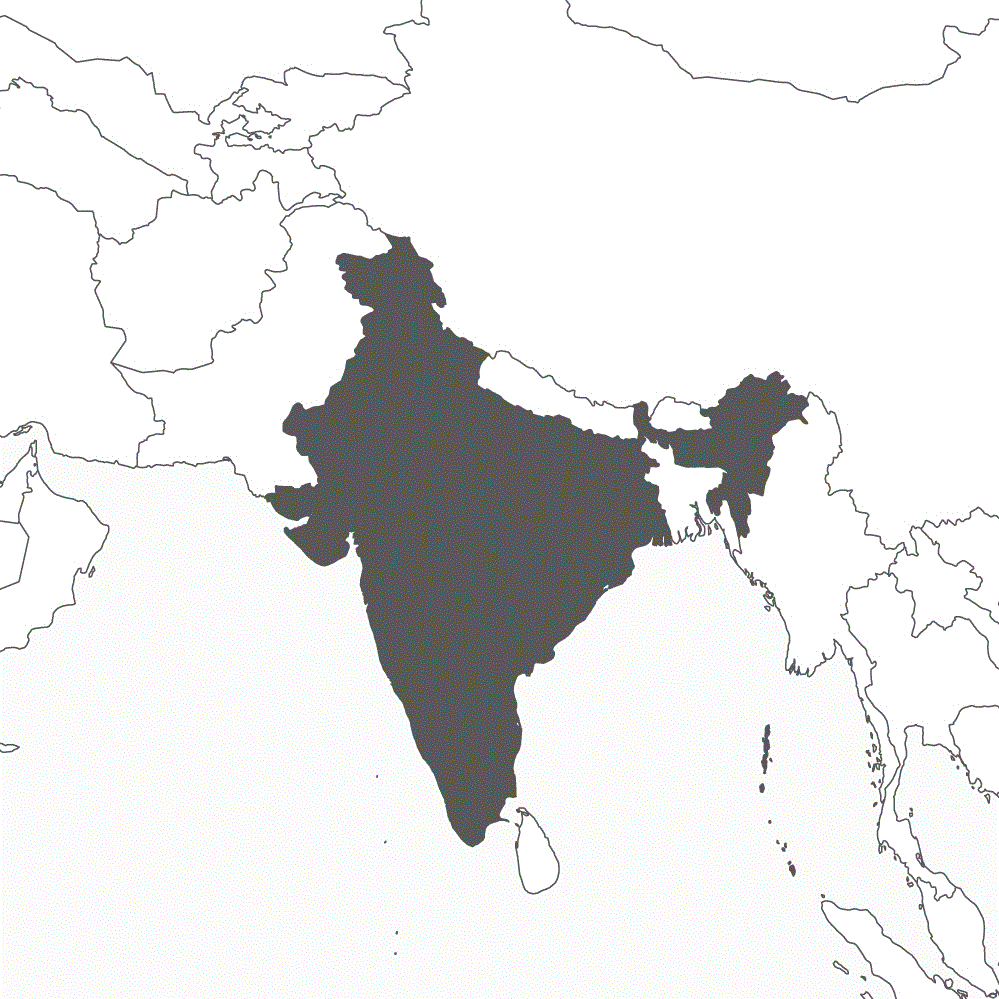Wrecking-ball politics
Munich Security Report: The US is destroying the ‘post-war world order’. It once secured Washington’s dominance but is no longer useful. In the new order, might is right and the weak will be ‘crushed’.
MUNICH (own report) – In advance of the annual Munich Security Conference, which kicks off this Friday, the organisers of this major event have written that the world is entering “a period of wrecking-ball politics”. As the Munich Security Report, published yesterday (Monday), says, the United States in particular is currently engaged in destroying the so-called post-war world order that once helped to ensure that American interests prevailed worldwide. The main reason for this act of destruction is seen as the rise of competing states within this “order”. The pre-conference paper points out that both the Trump administration and European parties of the extreme right can resonate with broad sections of the population to help them smash the existing “order”. These elements, apparently seeing no future for themselves in the face of the multiple crises, now sympathise with “wrecking-ball politics”. But, notes the Munich Security Report, while the most powerful in the international system may be able to exploit the “rubble”, “the weakest might be simply crushed underneath it.” The report admits to a problem of the rapidly increasing number of billionaires worldwide and their political power. Indeed, the US delegation to this year’s Munich Security Conference is headed by two of them. Read more
‘Down with weapons, up with wages!’
Interview with Cinzia Della Porta about the day of action against militarisation and war in more than 20 ports around the Mediterranean – from Morocco to Italy to Turkey.
ROME (own report) – A day of action by workers in more than twenty major ports around the Mediterranean was called this Friday. They are protesting against the EU’s militarisation policies and against the use of ports for arms supplies fuelling the war in Ukraine and in Israel. The campaign focuses on resisting “the transformation of the Mediterranean into a hub for the war economy,” explains Cinzia Della Porta in an interview with german-foreign-policy.com. Della Porta is a member of the executive committee of the Italian trade union Unione Sindacale di Base (USB), which is involved in organising the day of action. The USB wants Mediterranean ports to be made “places of peace”. As Della Porta points out, workers are always among the first to pay ‘the price of war’. They suffer wage cuts and restrictions on trade union rights, which are “direct consequences of the war economy”. Dockworkers in particular have to load weapons and are forced into being involuntary accomplices in wars they reject. Della Porta advocates combining “resistance to war with social struggles for wages, public services and workers’ rights”. Read more
‘No longer an exercise, but an operation’
The Bundeswehr says this year’s Quadriga manoeuvre, which continues until March, is no longer purely an exercise; it is a “mission-ready operation”. Military trainings are now run in public spaces.
BERLIN (own report) – The current Quadriga war exercise, which will continue until March, is no longer being conducted “purely as an exercise”. Rather, it is being run as a “mission-ready operation”, according to the German Armed Forces. Quadriga manoeuvres have been conducted each year since 2024. They rehearse a war against Russia and, this year, includes military exercises in Germany, Lithuania, the North Sea and the Baltic. A transition is taking place, moving from fictitious training exercise scenarios to a “mission-ready operation”. To this end, the Bundeswehr is increasingly shifting its manoeuvre activities in Germany from military training areas to civilian areas. This deployment last year already resulted in injuries. During a recent Bundeswehr manoeuvre “in a public space”, officials had to hand out claim forms to the civilian population for “compensation for damage caused during exercises”. Germany’s written constitution, the Basic Law, allows proper military operations by the army on domestic territory only in exceptional circumstances, including a state of tension (Spannungsfall). Parallel to a rapid expansion of manoeuvres and exercises across Germany, there has been a stark change in official language: the word ‘war’, which until a few years ago was nowhere to be found in public statements, is increasingly finding its way into discourse of politicians and the mainstream media. War against Russia has become an openly discussed real scenario for the future. Read more
The road to the bomb (II)
Calls for Germany to build its own nuclear bomb grow louder as Merz talks up a new ‘power politics’ for the EU. A Bundeswehr brigadier general wants tactical nuclear weapons.
BERLIN (own report) – Calls for the construction of a German nuclear bomb accompanied Chancellor Friedrich Merz’s call yesterday for the European Union to stand up for itself with a new “power politics”. The EU must finally “learn to speak the language of power politics” and “become a European power”, Merz declared in his government’s foreign policy statement made in the context of an escalating struggle with the United States under Trump’s leadership. Also on Thursday, former Foreign Minister Josef Fischer, a Green party grandee, joined other voices speaking out in favour of “European nuclear armament”. Following a plea by a brigadier general at the German Armed Forces Command and Staff College for Germany’s own atomic weaponry, questions about feasibility are also under discussion. A long-standing expert at the Jülich Research Centre, a nuclear physics hub, has been quoted as saying that the Gronau uranium enrichment plant could easily produce enough weapons-grade material for “around 340 warheads”. However, CDU politician Roderich Kiesewetter has to concede that such a step would require renegotiating the Two Plus Four Treaty, which in turn would bring reparations issues from the Second World War back onto the agenda. Read more
In search of alternatives (II)
EU free trade agreement with India is to offer alternatives to business with the US. With Europe in trouble as Trump’s extortionate tariffs bite, experts advise greater autonomy from the US.
NEW DELHI/BRUSSELS/BERLIN (own report) – The free trade agreement between the EU and India signed on Tuesday is intended to offer both sides some relief from their tariff-related losses from US trade. There is mutual desperation to reduce economic dependence on the United States. Estimates by a German think-tank, the Kiel Institute for the World Economy (IfW), show that the India deal can only partially offset the losses already caused by President Trump’s tariffs. However, it does provide some relief for important industries in both India and the EU, not least the Indian textile sector and Germany’s automotive and engineering industries. Potentially, the trade deal will – to a small extent – reduce the Trump administration’s scope for exerting economic pressure on both the EU and India. In Berlin, government advisers are encouraging efforts to achieve greater economic independence from the US. The new posture flows from fundamental strategic considerations. Another influential think-tank, the German Institute for International and Security Affairs (SWP) agrees that “dependence on the US must be significantly reduced” as a general principle The analysts argue that if these steps are not taken, Germany will slide into a state of permanent and subordination to the United States under increasingly abject conditions, as seen in the disastrous customs deal imposed on the European Union last summer. Read more
The new US military strategy
The new US military strategy still assigns European NATO countries a central role in containing Russia. But it is silent on the politics of force now triggering European opposition.
WASHINGTON/BERLIN (own report) – The United States’ new National Defense Strategy, released by the Department of War at the end of last week, continues to assign the NATO countries of Europe a central role when it comes to “containing” Russia in the future. The strategy paper says Moscow will remain “a persistent but manageable threat to NATO’s eastern members for the foreseeable future.” In Washington’s view, “Europe” should have the ongoing task of keeping Russia in check. This will, it argues, be easily achievable, since “European NATO dwarfs Russian in economic scale, population, and, thus, latent military power.” The paper has a strong focus on the long-term US power struggle with China, but argues for a lowering of the temperature. The People’s Republic is, according to analysts, already superior to the US in terms of high-tech armaments, at least in certain fields. As its military budget soars, the US is pushing ahead with a major rearmament programme. It is also now focused on bringing the “Western Hemisphere” under its military control. The new strategy paper does not address the Trump administration’s policy of force towards Europe. This aggressive posture is prompting some European NATO countries to shift away from Washington. Read more
US billionaires’ drive for world power
The German government does not rule out joining the ‘Board of Peace’.* The Gaza reconstruction body, under Trump’s full command, is envisaged as Washington’s UN replacement.
WASHINGTON/BERLIN (own report) – The German government is keeping its options open* regarding participation in the ‘Board of Peace’, a US-sponsored body with the official remit of overseeing reconstruction in the Gaza Strip. It is to be led by US President Donald Trump, who has awarded himself dictatorial powers. The Board is widely held to actually be a way of supplanting the United Nations. There have been unanimous reports that Trump will present the new body on Wednesday at the World Economic Forum in Davos, announcing some sixty or so states chosen by him for admission as members. With regard to the task of overseeing Gaza reconstruction, the Palestinians themselves are only accorded practical tasks at the level of local administration. Political control is exclusively reserved for a mix of foreign governments and billionaires. No wonder there is talk of a new mandate regime, this time led not from London but from Washington. The role of chairperson on the ‘Board of Peace’ is essentially a lifetime position reserved for Trump personally. He has powers to expel members at will and veto any decisions he doesn’t like. The Trump administration says, with obvious reference to the United Nations, the new body should replace “institutions” that have “too often failed”. France has already rejected the invitation to participate as a member state, but Germany has not.* Read more
Germany’s food power
German corporations control almost every link in the global food chain. They promote an agro-industrial production model with devastating impacts on humans, animals and the environment. But protests are growing.
BERLIN/BRUSSELS (own report) – A broad alliance of small-scale farmers, environmental initiatives and consumer protection groups are uniting under the slogan “Wir haben es satt” (We've had enough). They mobilised for a demonstration in Berlin last Saturday. Their protests are directed in part against the conditions in the global food industry, where German corporations play a dominant role in almost all areas. From the production of seeds and pesticides to veterinary medicines and food retailing, we find Germany-based companies nearly everywhere in the top ten largest players worldwide. Almost all food-related industries are run by oligopolies. They squeeze farmers’ margins and degrade them to the role of “price takers”. More and more farmers find themselves unable to compete and cope with worsening conditions. In Germany, as elsewhere, small-scale farms are going out of business. Their numbers are shrinking year on year by around 2,600. What is more, the agro-industrial production model is fuelling environmental damage and climate change. A change of direction is systematically blocked by the influential big agro lobby. Worse still, we are now confronted with a rollback of existing rules and protections. The EU is preparing to undermine a slew of directives on health and environmental protection by introducing “simplification packages”. Read more




